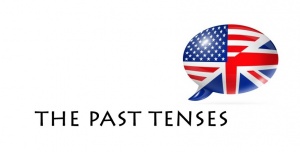Difference between revisions of "Language/English/Grammar/Express-Past"
Jump to navigation
Jump to search
| Line 11: | Line 11: | ||
*I have just ordered a new TV | *I have just ordered a new TV | ||
==The | [[Language/English/Grammar/Perfect-Tenses|All Perfect Tenses]] | ||
==The Past perfect== | |||
When one past event has to be situated in a more distant past than another past event. | When one past event has to be situated in a more distant past than another past event. | ||
*You had studied French before you moved to Paris. | *You had studied French before you moved to Paris. | ||
[[Language/English/Grammar/Perfect-Tenses|All Perfect Tenses]] | |||
==The past continuous== | ==The past continuous== | ||
Revision as of 12:16, 28 June 2017
Here is a quick article on how to express the past tenses in English.
The simple past.
Talk about past events in a historic context using yesterday, or a date or time.
- He died in 1920.
The Present Perfect
Situate past events in relation to the present situation.
- I have just ordered a new TV
The Past perfect
When one past event has to be situated in a more distant past than another past event.
- You had studied French before you moved to Paris.
The past continuous
When something is happening before and after another action in the past.
- She saw her as he was driving away.
